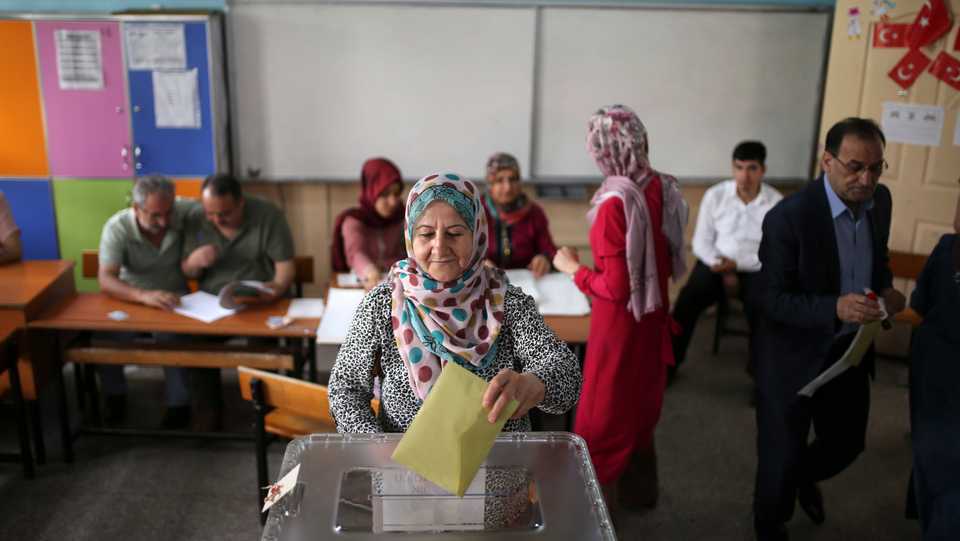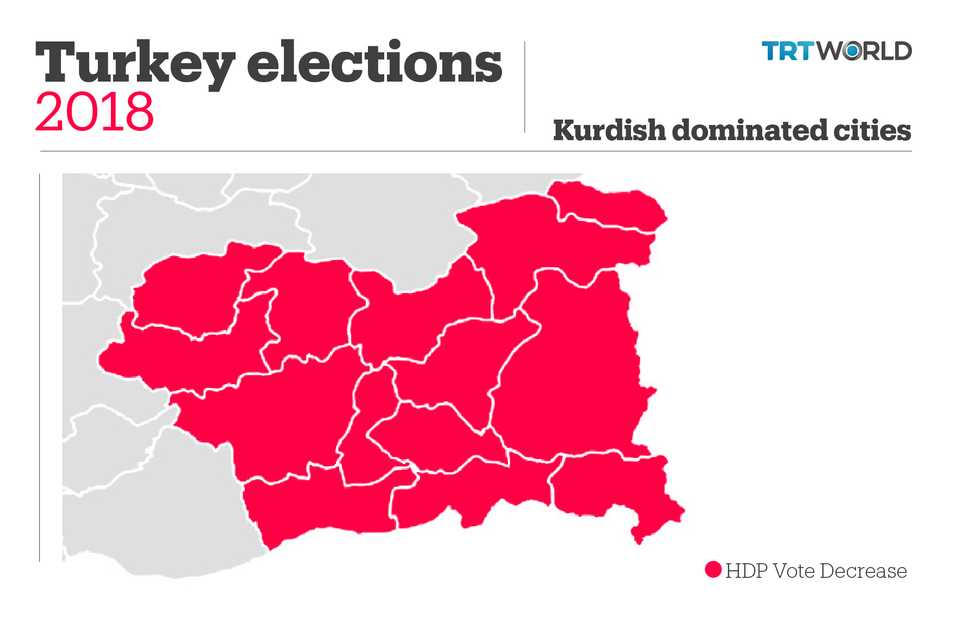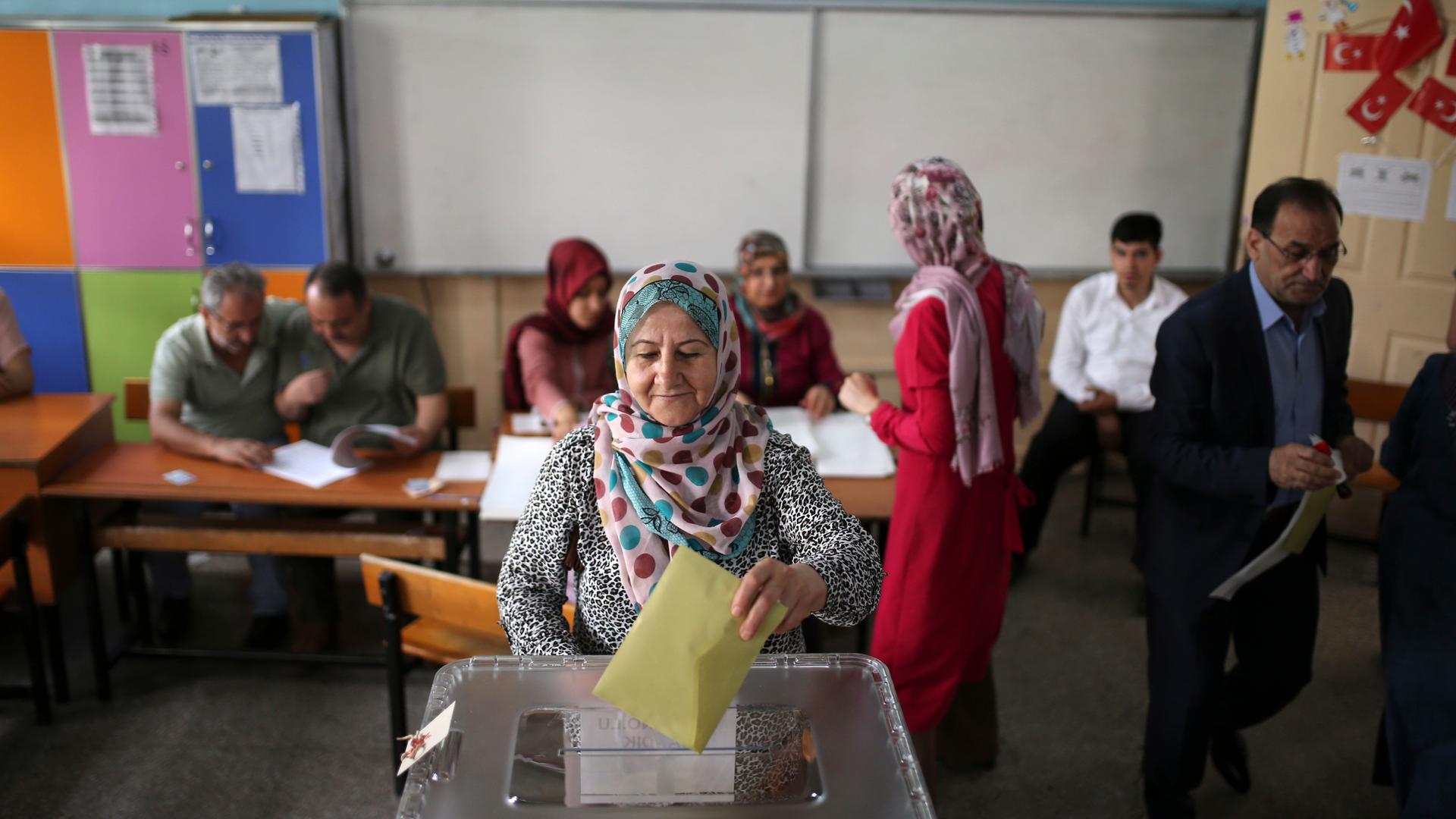
The results are in for the presidential and parliamentary elections in Turkey, with more than 99 percent of the votes counted: incumbent president and head of the governing AK Party Recep Tayyip Erdogan has won the election with 52.6 percent of the vote.
Erdogan’s victory was confirmed by the head of the Supreme Election Council, Sadi Guven, who also said the official poll results would be announced on July 5.
As the first popularly elected president of Turkey, Erdogan has secured the next five years in power under a new executive presidential system that was approved in a referendum with nearly 52 percent of the vote last year.
Kurdish votes, in eastern and southeastern cities of Turkey, were predominantly split between the Justice and Development (AK) Party and the People’s Democratic Party (HDP), and have shaped results of the elections of June 24.
Increasing votes, over the years, in the region for Erdogan and his AK Party helps his victory in the presidential election
In all of the cities of the region, HDP lost support compared to the last parliamentary elections in November 2015.
In November 2015, AK Party got 11 percent of votes in Sirnak, which increased to 18.18 percent in the 2018 parliamentary elections. HDP, on the other hand, has lost almost 15 percentage points from 85.53 percent.

In Hakkari, one of the cities most supportive of the HDP, the AK Party nearly doubled its parliamentary vote share, from 12.6 percent in 2015 to 20 in the current elections, while HDP’s vote share decreased from 83.7 percent to 70.
In the latest elections, the lowest increase in vote share for the AK Party as compared to the November 2015 polls (21.37), was less than one-seventh of a percentage point in Diyarbakir, a predominantly Kurdish city in Turkey.
However, the HDP’s share of votes decreased from 72.8 percent to 65.5 from 2015 to 2018 in Diyarbakir.
Yilmaz Demirhan, chairman of the New Middle East Strategic Research Center (YORSAM), says, “We had also observed a high vote share for the AK Party in the Kurdish region on YORSAM’s election polls this year and it is seen that AK Party has managed to win back the votes it had lost in the June 2015 elections.”
Demirhan thinks HDP would have failed to pass the 10 percent electoral threshold if it had received votes from its own supporters only.
But some voters of the main opposition, CHP, supported the HDP, after receiving the message from the party’s chairman Kemal Kilicdaroglu, that the HDP should pass the threshold to gain seats in parliament so as to reduce the number of AK Party’s seats.
Demirhan says, “According to our surveys at the beginning of the election campaign, HDP would have lost about eight percentage points of its vote in the region in comparison with the November 2015 elections.”
“If you look carefully what happened after the HDP passed the election threshold, the number of AK Party seats in the parliament decreased to under 301, which is the simple majority,” he said.
The main reason is that when the HDP passes the election threshold it affects the AK Party, resulting in a decrease of at least 60 MPs in the parliament, since the Kurdish votes are split between the AK Party and HDP in the region.
If the HDP were unable to enter parliament upon failure of crossing the electoral threshold, the AK Party would’ve gotten nearly all of the region’s seats being the only major party.
HDP passes election threshold
The HDP, a political party that was not included in any of the electoral alliances and ran in the elections on an independent ticket, got 11.7 percent of the votes, securing 67 seats in parliament. How the HDP would fare was one of the biggest topics of debate in the run-up to the June 24 elections. For the first time in its history, the HDP passed the electoral threshold in the 2015 elections.
Some members of the HDP were banned from politics on charges of having links with the PKK terror group. Also, its former chairman and presidential candidate, Selahattin Demirtas, was arrested in November 2016 after being charged with having links with the group.
Demirhan says that in the June 24 elections, the AK Party and the HDP both used the operations against the PKK to their advantage, including Operation Olive Branch in Syria.
The People’s Alliance – comprising the AK Party and MHP – gets more support in the western cities for fighting terrorism, according to Demirhan.
He adds that the HDP’s use of the operations for consolidation of the votes in southeastern Turkey involves the party presenting them as against the “Kurdish people” and not against terrorism.
Despite a decrease in support for the HDP, he emphasises that the main reason people in the Kurdish regions continue to support it because of the party’s involvement in national politics, Demirhan further says.










Discussion about this post